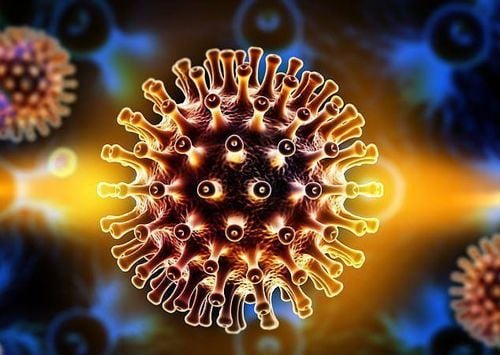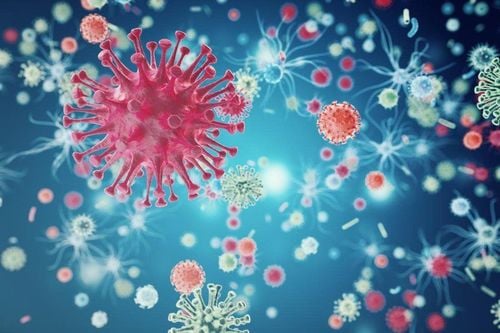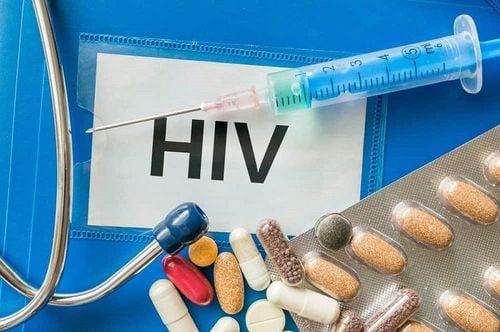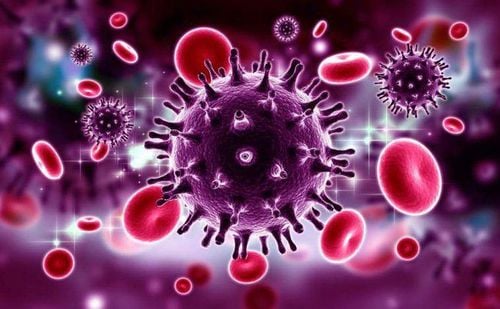This is an automatically translated article.
When it comes to the risk of HIV transmission, the most important thing is to know the symptoms of the disease. Early detection of HIV helps patients receive timely treatment to control the virus and prevent the risk of progressing to stage 3 HIV. HIV stage 3 is often referred to as AIDS. Early treatment with antiviral drugs not only controls the viral attack, but also prevents transmission to others.
1. Symptoms of HIV in the early stages
Signs in people with early HIV virus often have symptoms similar to those caused by the flu. At this stage the virus begins to move into the bloodstream and begins to multiply in large numbers. Symptoms include:
Headache Fever Fatigue Swollen lymph nodes especially in the neck and groin 2-4 weeks after infection Sore throat Thrush Rash Muscle and joint pain Mouth sores Genitals compromised Night sweats Diarrhea Drowsiness Nausea Patients infected with the virus at this stage may have a low-grade fever ranging from 37.5 to 38.5 degrees Celsius the day after infection. These symptoms usually last for about a month. This stage is also called the window period because conventional screening tests do not identify the disease.
These symptoms usually appear within 1-2 months of infection, although they can appear 2 weeks after exposure. Furthermore, some people may not show any signs of HIV infection. At the same time, these symptoms can be similar to some other common diseases. To know for sure if you have HIV or not, you need to go to a medical facility to perform the necessary tests.
Symptoms may not be apparent for 10 years, but that doesn't mean the virus is gone. HIV is a manageable health condition, but if left untreated, HIV can progress to stage 3 even if there are no symptoms.
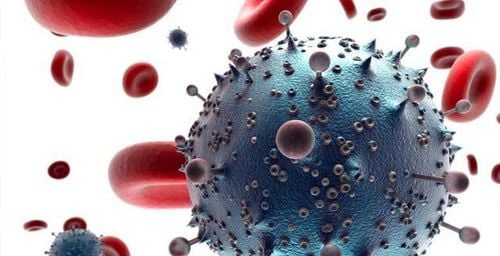
Các triệu chứng có thể không biểu hiện một cách rõ ràng trong 10 năm nhưng không có nghĩa là virus đã biến mất
2. Symptoms of AIDS
Symptoms that suggest a person with HIV may have progressed to stage 3 -AIDS include:
High fever Chills and night sweats Rash Difficulty breathing and persistent cough Severe weight loss White spots in mouth Parts Genital ulcers often feel tired Pneumonia Memory loss
3. Stages of HIV
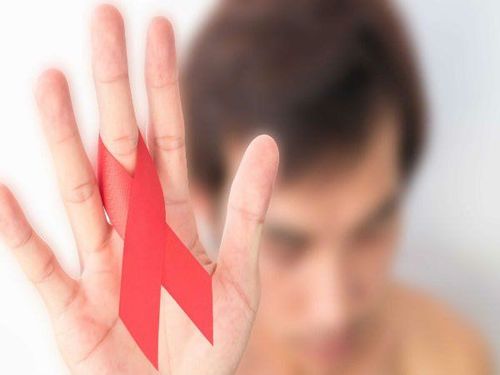
Tùy thuộc vào từng giai đoạn của HIV, các triệu chứng biểu hiện có thể khác nhau
Depending on the stage of HIV, the symptoms present may vary.
The first stage of HIV is called the acute or primary stage. At this stage, most people experience common flu-like symptoms that can be difficult to distinguish from a gastrointestinal or respiratory infection.
The next stage is the clinical phase. The virus becomes less active even though it is still active in the body. At this stage, the patient does not experience any other symptoms because the virus is progressing at a very low level. This period can last a decade or more.
The last stage of HIV is stage 3 . During this stage, the immune system is severely damaged and susceptible to opportunistic infections. The immune system is almost completely destroyed, the patient easily dies from opportunistic infections. As HIV progresses to stage 3, symptoms related to the infection also become more apparent. These symptoms include:
Nausea Vomiting Fatigue Fever Rapid weight loss HIV-related symptoms such as memory impairment also become apparent.
HIV can be transmitted as soon as it is introduced into the body. At this stage, the blood contains a higher concentration of HIV, making it easier for the virus to be passed on to others.
Not everyone has early symptoms of HIV, so testing is the only way to know if you have HIV. Early diagnosis helps people living with HIV receive timely treatment. Proper HIV treatment can eliminate the risk of transmitting the virus to a sexual partner.
When it comes to HIV symptoms, it's not always obvious. Many HIV symptoms, especially the most severe ones, arise from opportunistic infections.
When the patient's immune system is not weakened, the infection is not affected. However, when the immune system is weakened, this virus attacks the body and causes illness. People who have no symptoms in the early stages of HIV infection, if the virus progresses, the symptoms of the disease will begin to become more obvious.
HIV testing is important, because a person with untreated HIV can still transmit the virus even if they have no symptoms. However, with current treatments, it is possible to eliminate the risk of transmitting the virus to a sexual partner. Treat the HIV virus with drugs that can suppress the virus
Taking an HIV test is the only way to determine if the virus is present in the body. Certain factors increase the risk of HIV transmission, such as having sex without a condom or sharing needles.
Vinmec International General Hospital is one of the hospitals that not only ensures professional quality with a team of leading medical doctors, modern equipment and technology, but also stands out for its examination and consultation services. comprehensive and professional medical consultation and treatment; civilized, polite, safe and sterile medical examination and treatment space. Customers when choosing to perform tests here can be completely assured of the accuracy of test results.
Please dial HOTLINE for more information or register for an appointment HERE. Download MyVinmec app to make appointments faster and to manage your bookings easily.
Article referenced source: Healthline.com





